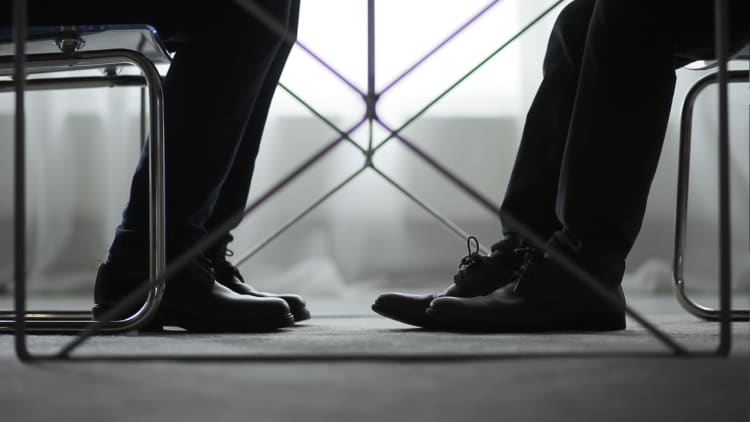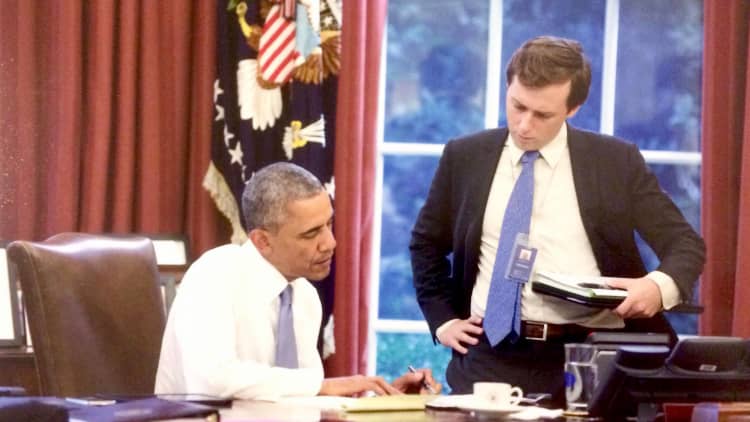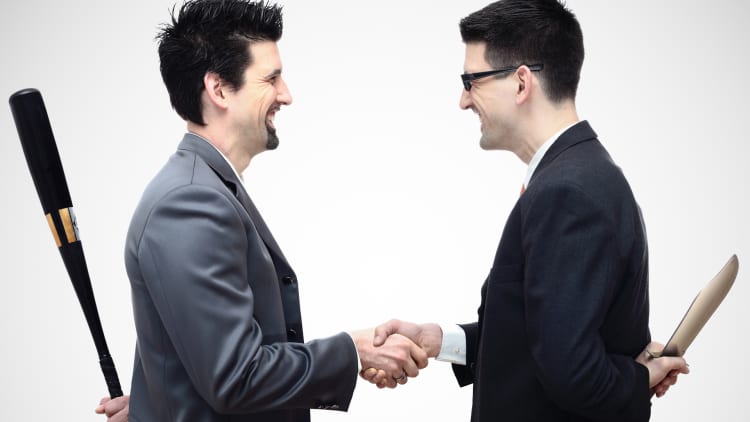If there's one thing you should do to evoke an executive presence at work, it's making eye contact when you speak, according to various studies. Eye contact is an important nonverbal social cue because it projects confidence, self-esteem and assertiveness.
"When someone is talking to you, make sure you look them in the eye," says career coach Becky Berry. She adds that looking down or looking around makes you look nervous.
Overall, adults only make eye contact 30 to 60 percent of the time when speaking to individuals or groups, communications-analytics company Quantified Analytics tells The Wall Street Journal. However, they should really be making eye contact 60 to 70 percent of the time to create an emotional connection.
According to a study from the Idiap Research Institute, eye contact shows a person's social hierarchy and dominance in a conversation. The study found that people who are at the top of the pecking order tend to look longer at their subject and they also receive more eye contact in return.
The power of eye contact can even be seen with inanimate objects. Cornell University researchers showed 65 undergraduate students two images. One was of the Trix rabbit on a box of cereal looking down and avoiding eye contact. The other image was of the rabbit looking upward and making direct eye contact with passerby.
The students were then asked to rate their agreement with the following statements: "I trust this brand," "I feel connected to this brand," and "this box is attention-getting." The students chose the Trix cereal box in which the bunny made eye contact, by a 16 percent margin.
Researchers concluded that eye contact evokes positive feelings of trust and a deeper connection.
Marcus Lemonis, who coaches entrepreneurs on CNBC's "The Profit," encourages those in the workplace to pay attention to body language cues like eye contact and facial expression when analyzing someone's leadership abilities. In fact, research shows that those who are able to hold a gaze appear more competent.
In another study, participants with higher self-esteem were found to break eye contact less frequently whereas those with lower self-esteem broke eye contact more often. The study found that there is an association between confidence in one's own worth and the ability to hold eye contact.
Body language expert Lillian Glass notes the importance of eye contact in her book "The Body Language Advantage." Glass says that breaking eye contact not only suggests submissiveness but that "when eye contact is maintained, it signifies control or power over a situation and establishes dominance."
Like this story? Like CNBC Make It on Facebook.
See also:
Why IBM sends its best employees abroad for four weeks
The No. 1 way for introverts to become better at public speaking
You probably feel more loyal to your co-workers than to your boss or company



